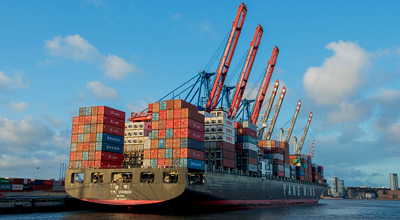
Image: Pixabay
Argentina's bulk carriers may be forced to reduce loads on 40% by the end of September or beginning of October due to low water levels in the Paraná River, the general manager of the Chamber of Port and Maritime Activity told AgriCensus.
{module Form RD}
If river conditions continued to deteriorate as expected, the Handymax ships – which normally carry 35,000-40,000 tons – would likely carry 17,000-18,000 tons less due to low water levels at that time, Guillermo Wade was quoted as saying in the statement July 28th.
For Panamax ships, with capacities of up to 70,000 tons, ships could carry up to 21,000 tons less volume, he said.
Bulk carriers were currently carrying 21% less grain at Rosario ports due to low water levels, according to Wade.
Transporters who were unable to complete grain shipments at the ports of Rosario had to move to the Necochea or Bahia Blanca terminals, in the south of the province of Buenos Aires, or to ports in southern Brazil to complete the shipments, generating costs higher for shipowners, says the report.
Low water levels in Paraná could lead to losses of US $ 315 million for the Argentine agro-industrial sector between March and August 2021, according to a study by the Rosario Grain Exchange (BCR).
Last year, Argentina's export hub at Rosario handled 70% of all grain exports, as well as 96% of all flour and 96% of all vegetable oils, while Paraná was the main waterway connecting the center to markets of global exports, wrote the AgriCensus.
Water levels near Rosario are currently around 0.04m versus the historical average of 3.22m for July, according to the latest data available from Argentina's National Water Institute (INA), the report says.
These levels were expected to continue decreasing, with no improvements in water levels expected over the next three months based on weather forecasts, according to the INA.
On July 26, the Argentine government had declared a state of water emergency lasting 180 days, according to a previous report from the AgriCensus , when the government would be adopting measures to mitigate the serious situation caused by low water levels in Paraná.
This text has been automatically translated from English.
Source: Oils & Fats International (OFI)














